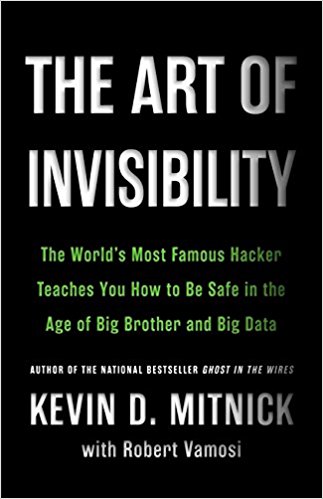
By Kevin Mitnick (2017)
I recommend you visit the library to check out books. If you buy your own copy, I can earn a small commission if you use my Amazon affiliate link.
Convicted hacker, now consultant, gives critical information to secure our digital data, devices, and accounts.
Mitnick heads a cybersecurity firm that runs penetration tests to bypass the security systems of companies and gain access to their database. His report alerts the companies to vulnerable areas and allows them to fortify identified weaknesses.
Mitnick’s expertise is becoming a critical factor in business especially with the widespread hacking of government agencies like the Philippine Commission on Elections, the US Department of Justice and Internal Revenue Service; email provider Yahoo; and social media sites Snapchat and LinkedIn.
“In the midst of this culture of openness and sharing, we need to think carefully about the information we’re volunteering to the world,” writes Mitnick.
First of all, Mitnick details how much personal details about each of us are collected and stored online without our knowledge and consent. Everything is cloaked in invisibility so we are unaware and unguarded.
Just like a toddler who thinks she is hidden when she closes her eyes, we think that if we don’t see our data, then no one else can.
But there are digital trackers everywhere—from each keystroke, words typed, e-mail sent, sites visited, purchases, credit card use, cell phone, text, photos, posts, TV shows, movies, You Tube views, and searches.
At work, we can be monitored through our files, messages, printouts, photocopies, Voice over Internet Protocol (VoIP) telephones, videoconferences, cloud storage, and our own cell phone.
“The danger of living within a digital surveillance state isn’t so much that the data is being collected (there’s little we can do about that) but what is done with the data once it is collected,” writes Mitnick.
Mitnick warns about the terms of service that users sign to register with social networks that allow all our data to be used in any way, including our real identity.
There are so many ways we can be tracked and hacked, but Mitnick offers technical and practical strategies to at least discourage attack by making it difficult and time-consuming for attackers, or throw them off your scent.
Mitnick can go in-depth and technical for those serious about staying digitally hidden or off the grid. He gives you specific steps if you want to be anonymous online.
Mitnick shares actual events, government and law enforcement surveillance, and his personal experience with breaching laws and security, and how he was caught! He substantiates his facts with research, useful websites, and applications to help us become less susceptible to attack.
This books is a valuable resource for would-be hackers and anyone interested in maintaining a modicum of security and restoring some peace of mind.
More importantly, Mitnick reminds us of the human factor that allows trackers to identify us. We can reveal ourselves through our distinct key strokes or when we slip up or become lax with security.
Sometimes, other people can lead trackers to us, as when they post pictures of us in a traceable location.
“We can think proactively about our information and realize that even if what we’re doing with it feels benign—sharing a photograph, forgetting to change default log-ins and passwords, using a work phone for a personal message, or setting up a Facebook account for our kids—we’re actually making decisions that carry a lifetime of ramifications. So we need to act,” writes Mitnick.
We must maintain vigilance.
